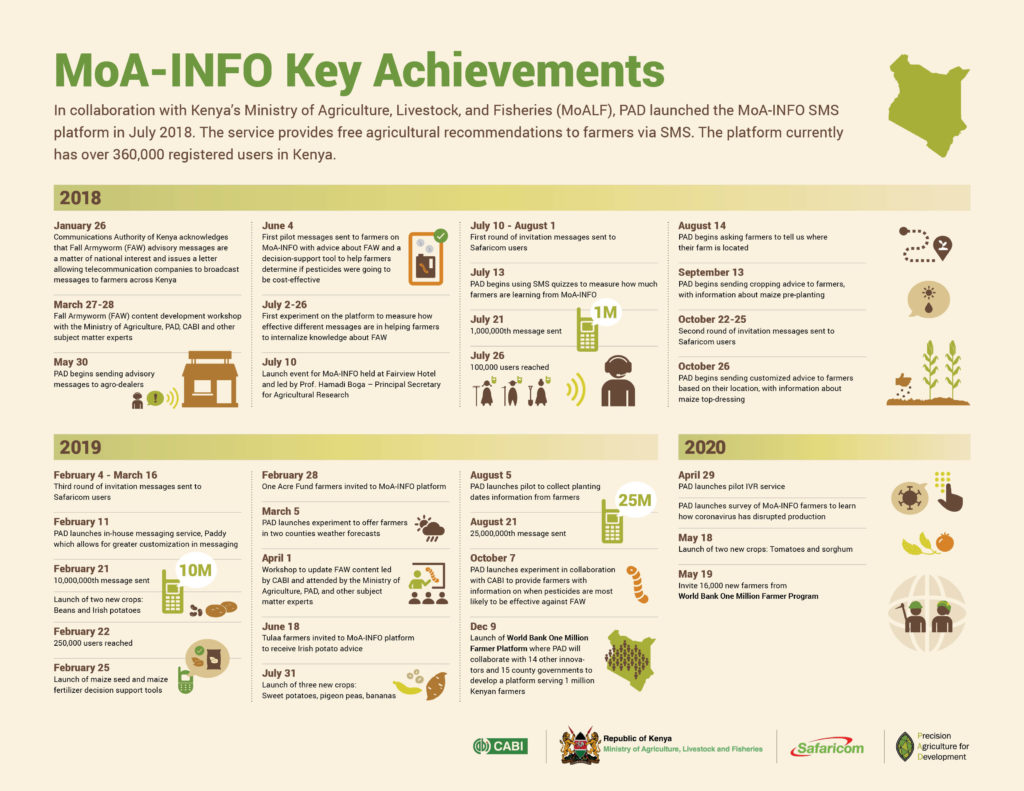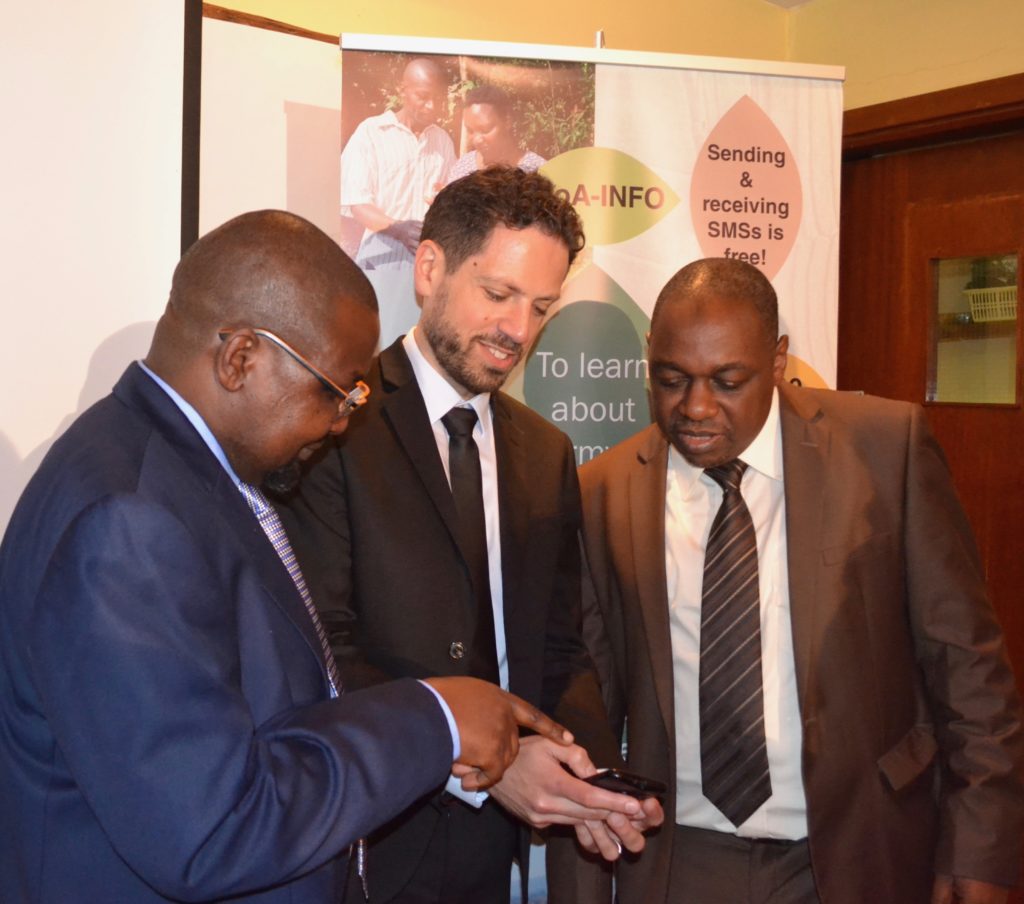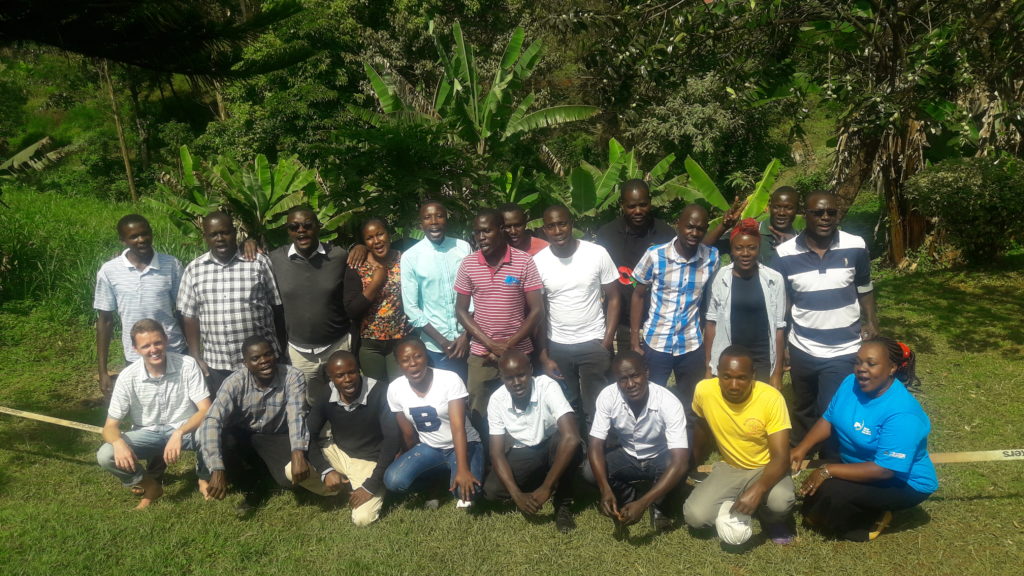MoA-INFO has rapidly developed new capabilities and widened its scope to more effectively serve Kenya’s smallholder farmers. PAD’s Africa Regional Director, Emmanuel Bakirdjian reflects on the first two years of MoA-INFO’s operations.

This month marks the second anniversary of the launch of MoA-INFO, Precision Agriculture for Development’s flagship service in Kenya. In just two years, MoA-INFO – which we deliver in partnership with the Kenyan Ministry of Agriculture, Livestock, and Fisheries (MoALF) – has developed from a relatively simple one-way information advisory system, into a set of dynamic, mutually reinforcing, two-way communications tools which empower farmers to make informed agriculture choices across a range of decision points.
The service has grown in scope and reach since it commenced operations with 20,000 farmers in the second quarter of 2018. To date, MoA-INFO has cumulatively serviced more than 420,000 farmers across all of Kenya’s 47 counties. Initially, the platform focused on dispensing advice focused on combating an invasive pest, Fall Armyworm (FAW), but has been expanded to include recommendations on eight subsistence and cash crops and a range of associated pests and diseases. These include (as of July 10th, 2020): maize, beans, Irish potatoes, sweet potatoes, bananas, pigeon peas, tomatoes, sorghum. The system delivers customized advisory, in either English or Swahili, tailored to a farmer’s location and agro-ecological zone. The service is entirely free to farmers and can be accessed from any type of phone.
Farmers can register on the service by texting the word ‘FARM’ or ‘SHAMBA’ to 40130, to receive messages in English or Swahili, respectively. Users can change the language of the service at any time by texting the instruction ‘ENGLISH’ or ‘SWAHILI’. Farmers can access information by texting ‘MENU’ (‘ORODHA’ in Swahili), and can access the FAW monitoring tool by texting the word ‘CHECK’ (‘ANGALIA’ in Swahili).

All advisory content is based on recommendations jointly developed with technical experts at the MoALF (including KALRO, the Kenya Agricultural and Livestock Research Organization). The service allows farmers to both pull content, when they are looking for information about crop production or pest control, and receive push messages containing information about farming practices that are timed to coincide with cropping schedules in different parts of the country.
The service also provides farmers with Decision Support Tools (DSTs) to help farmers make evidence-based decisions. PAD has developed tools to help farmers decide on which maize seeds to plant, which fertilizers to apply, and whether pesticides are appropriate based on the scale of pest infestation. Using a farmer’s location, MoA-INFO asks the user filter questions – such as their land size, budget and preferences – and then provides them with recommendations for inputs and practices based on their responses.
Since the launch of the platform, we have run dozens of A/B tests to generate evidence to allow us to improve the design of the service. For example, we have leveraged the results of A/B tests to optimize the way in which we ask farmers for their location, to more effectively encourage farmers to refer peers to the platform, and to improve the way in which we ask farmers about their language preferences on the platform.
We have also used A/B tests and other rigorous research methods to measure the impact of the platform. We have run five A/B tests evaluating the effect of push messages on farmers’ knowledge about FAW using a combination of SMS and phone surveys. In a separate experiment, we partnered with the Centre for Agriculture and Bioscience International (CABI) to test messages leveraging weather modelling to inform farmers about the appropriate application of pesticide tailored to their location. In two of the six trials, farmers were statistically more likely to answer quiz questions correctly than farmers in the control group who did not receive the push messages. Using meta-analysis, we have found that, on average, farmers who received the MoA-INFO messages answered 5% more questions correctly than those who did not. Lastly, trials conducted with CABI and One Acre Fund, respectively, demonstrated that SMS messages increased the self-reported likelihood of adopting recommended practices by 5 to 23%.
As we press ahead, we look forward to continuing to serve smallholder farmers in Kenya with quality, customized, and actionable information. We will continue to expand the platform, both in terms of its reach and its content to support as many farmers as possible with critical and empowering information. Lastly, we want the platform to continue to be an effective tool that is available to the Ministry of Agriculture, and other partners, capable of responding rapidly to new threats confronting farmers, and to help them mitigate new risks as they arise.

I am immensely proud of what the PAD team has achieved in such a short period of time. Our work has been empowered by the quality of our partnerships with MoALF, KALRO, CABI and Safaricom which have enabled us to scale and iterate so efficiently. In particular, I want to thank Prof. Hamadi Boga, Principal Secretary of the State Department for Agricultural Research in MoALF, who officially launched the platform two years ago. Prof. Boga has been a tireless advocate for the platform, and has promoted and advertised the shortcode number and keywords at multiple conferences and in his interactions with farmers. We look forward to continuing our work with Prof. Boga and his team.
For any questions or comments, please feel free to reach out to us at kenya@precisionag.org.